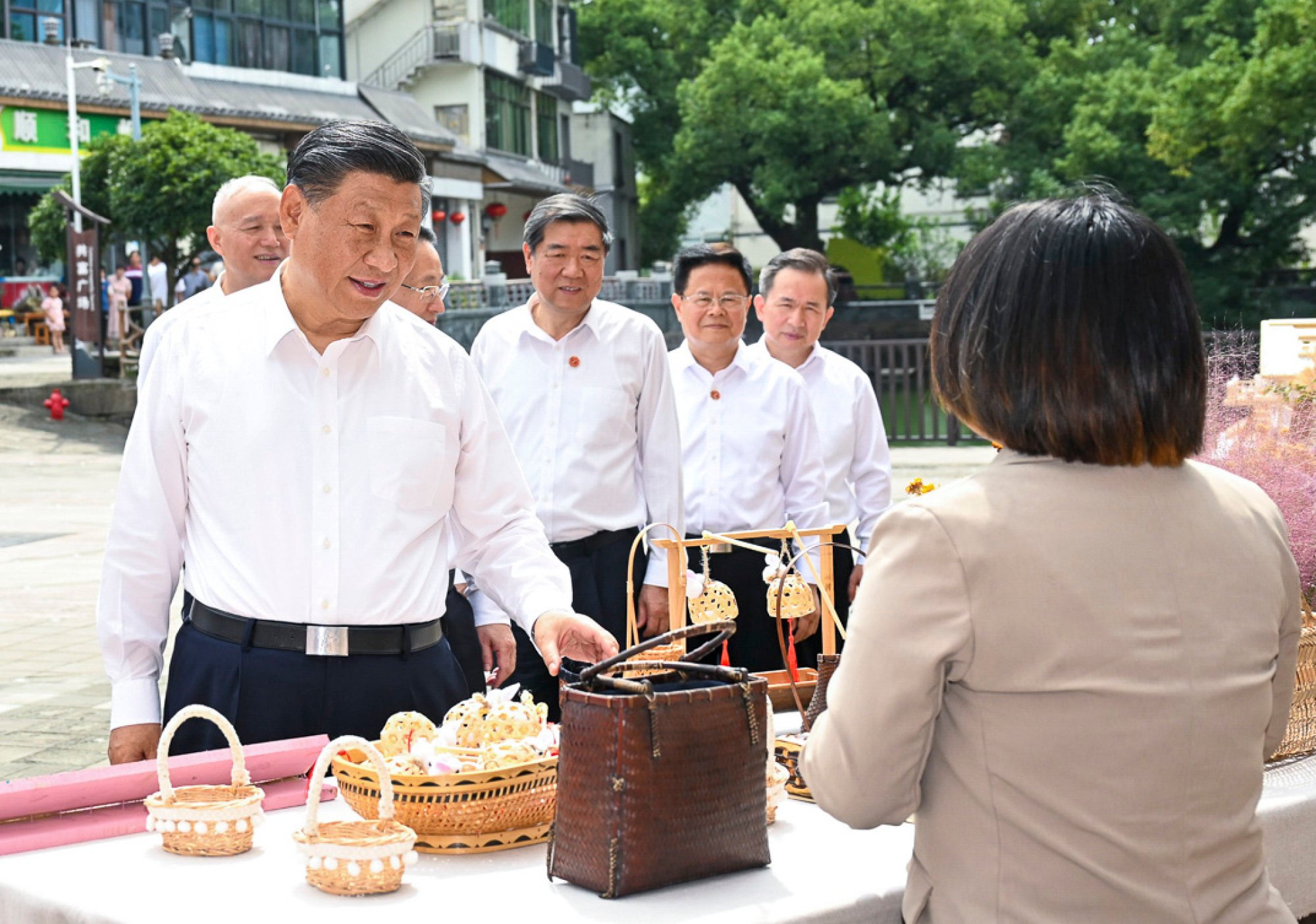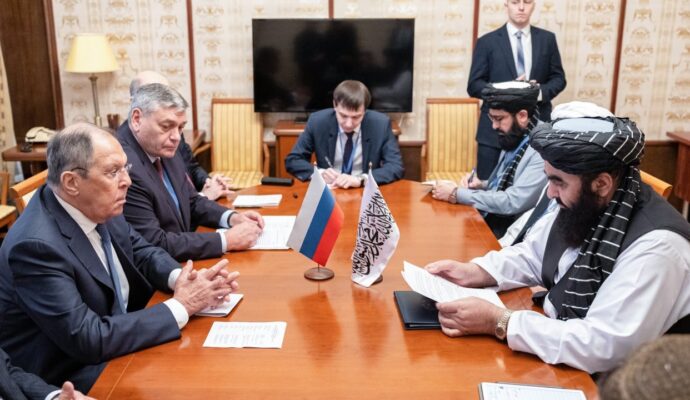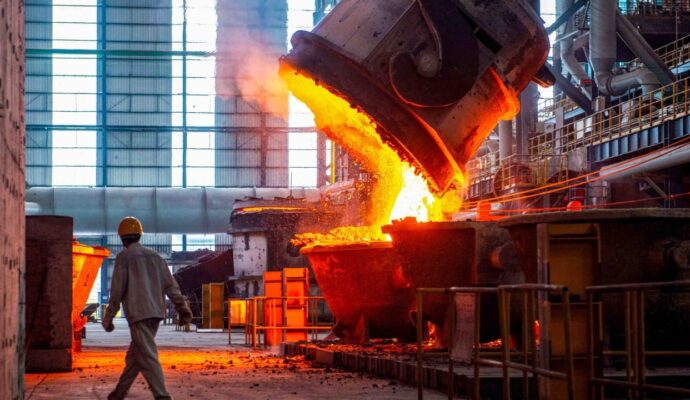
Ahead of the Asian Games, Xi on Wednesday visited Lizu, a village hailed as a success story of Beijing’s push to revitalise rural areas.
Xi also went to Yiwu in Jinhua – home to the world’s largest wholesale market for small manufactured goods – where he heard about “the development of distinctive local industries, efforts to promote rural revitalisation and boost foreign trade”, according to the Xinhua report on Thursday.
Advertisement
Yiwu, which is seen as a barometer for Chinese exports and a symbolic place for entrepreneurship, has been hit by reduced international demand and the effect of China’s tensions with the United States and its allies.
Is China’s slice of export pie melting as geopolitical uncertainties heat up?
Is China’s slice of export pie melting as geopolitical uncertainties heat up?
The Chinese leader’s tour came soon after Beijing announced a series of initiatives to prop up the country’s private economy, which was battered during the pandemic and has remained sluggish this year.
Cabinet on Wednesday also urged local governments and state-owned enterprises to speed up on addressing the issue of overdue payments to private businesses.
Beijing is seeking to improve confidence among entrepreneurs, promising equal treatment for private companies, political backing to tear down market-entry barriers for private entrepreneurs, along with legal backing, tax cuts and financial incentives.
Advertisement
The village of Lizu is home to 700 people who have seen their collective income increase because of land sales, house rentals and tourism, according to a report by its local government. The report said it had also invested in infrastructure such as roads and renewal projects in the village.
Xi also went to Shaoxing on Wednesday, visiting an exhibition commemorating the “Fengqiao experience” – a relic from the Mao Zedong era in which the masses were mobilised to take on instability at the grass roots. Xi also visited the city’s East Zhejiang Canal Cultural Park.
Advertisement

